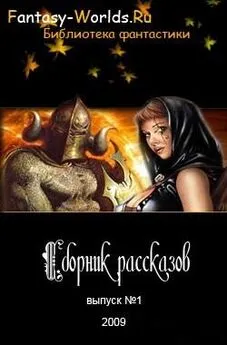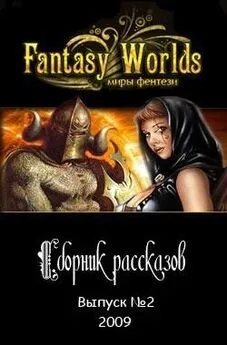Пользователь - WORLDS END
- Название:WORLDS END
- Автор:
- Жанр:
- Издательство:неизвестно
- Год:неизвестен
- ISBN:нет данных
- Рейтинг:
- Избранное:Добавить в избранное
-
Отзывы:
-
Ваша оценка:
Пользователь - WORLDS END краткое содержание
WORLDS END - читать онлайн бесплатно полную версию (весь текст целиком)
Интервал:
Закладка:
Of course Lanny ought to have known better than to ask questions of such a man. The man tried to avoid answering them, saying that he didn't wish to give offense to a member of the Budd family; but that was a challenge to Lanny's integrity; he had to declare that he couldn't possibly be offended by the truth. So Mr. Smathers said, all right, if he asked for it he could have it. The other members of the company gathered round to hear what this "radical" young minister might have to say to a son and heir of Budd Gunmakers.
What Mr. Smathers said was that Budd's didn't allow their workers to organize. They had refused to let the strikers speak on the streets and had suppressed their papers; they had had the town council pass a law forbidding the distribution of handbills. Later on they had shut down the strike headquarters and had the leaders arrested on various charges. They had brought in an army of guards, whom they had made into "deputy sheriffs," and provided with arms and ammunition - made by the Budd workers for their own undoing. So the strike had been broken, and now no one could talk union in any Budd plant; workers who breathed a word of it were instantly fired.
Could all that be true? asked Lanny; and the Reverend Mr. Smathers replied that everybody in Newcastle knew that it was true. The businessmen justified it by saying that it was necessary to keep the workers from being led into violence. "What that means," said the minister, "is that large-scale private industry will destroy what we in America call political democracy, and our liberties are doomed. It seems to me that is something about which American citizens ought to be making up their minds."
Lanny could only thank Mr. Smathers for speaking frankly, and say that he had lived abroad, and hadn't even heard about the strike, which had taken place in the summer of 1913, while he was at Hellerau. Strange to think of such things going on at the very time that he was learning to enact the role of one of Gluck's furies! Such a graceful and charming fury he had been - and taking it for granted that tragic and cruel things happened only in operas and dramas, and that you were doing your duty to mankind when you learned to enact them beautifully!
Lanny didn't tell Mr. Smathers how his father had admitted to him that Budd's maintained a spy system. Nor did he say what he knew about his Uncle Lawford, who had had the handling of that strike. A somber person was this "vice-president in charge of production"; both he and the president of the company would know that whatever they did to protect Budd's and its profits was the will of the Almighty, and that whoever opposed them was an agent of Satan - or perhaps of Lenin and Trotsky, two personal devils who had suddenly leaped onto the front pages of American newspapers.
IX
Of course those who had been present that evening went out and talked about it. From the point of view of a hostess it had been a great success; people would be eager to come to a home where such dramatic incidents took place. The reports spread in ever-widening circles, and did not follow the laws which govern sound and water waves, but grew louder and bigger as they traveled. So came a new experience for the new pupil of St. Thomas's Academy.
One morning he was called from class to the office of the headmaster, Mr. Scott. This gentleman was tall and gray-haired, firm but kind in manner. With him were two severe-looking gentlemen whose clothes made them known as persons of importance. One was large and heavy, with scanty hair, and was introduced as Mr. Tarbell; Lanny learned afterwards that he was an important banker from the state capital, chairman of the board of trustees of the school. The other was a young businessman of the keen, go-getter type, an official in one of the big insurance companies. Mr. Pettyman was his name, and he also was a trustee.
Lanny was quickly made aware that this was a grave occasion. They had come, said the headmaster, to make inquiries about Mr. Baldwin, concerning whom certain reports were being circulated they wished Lanny to tell them all he knew about this master.
The request brought the blood to Lanny's cheeks. "Mr. Baldwin is a gentleman of the very highest type," he said, quickly. "He has been most kind to me, and has given me a great deal of help."
"I am pleased to hear you say that," replied the headmaster. "Is there anything you could report that would do him harm?"
"I'm quite sure there is not, sir."
"Then I know you will be glad to answer any questions these gentlemen may ask you."
Lanny wasn't exactly glad, but he realized at once that if he hesitated, or seemed to be lacking in frankness, it would be taken as counting against his friend.
Mr. Tarbell, the banker, spoke in a slow and heavy voice. "It is being reported that Mr. Baldwin has talked in a way to indicate that he is out of sympathy with the war. Has he said anything of the sort to you?"
"Do you mean privately, or in class?"
"I mean either."
"In class I have never heard him mention the war. Privately he has sometimes agreed with things I have said to him."
"What have you said to him?"
"I have said it's a war for profits, and that for this reason I find it hard to give it any support."
"What reason can you have for saying that it's a war for profits?"
"I have seen the evidence, sir."
"Indeed! Who has shown it to you?"
"My father, for one."
The banker from Hartford appeared taken aback. "Your father has said that in so many words?"
"He has said it a hundred times. He wrote it to me continually while I was living in France. He warned me on no account to let myself forget that it's a war to protect big French and British interests, and that many of them are trading with the enemy, and protecting their own properties to the injury of their country."
"Ahem!" said Mr. Tarbell. Words seemed to have failed him.
"And what is more," persisted Lanny, "Zaharoff admitted as much in my presence."
"Who is Zaharoff?"
It was Lanny's turn to be surprised. "Zaharoff is the richest man in the world, sir."
"Indeed! Is he richer than Rockefeller?"
"He controls most of the armament plants of Europe, and my father says this war has made him the richest man in the world. Now he is keen for the war to continue - 'jusqu' аи bout,' he said. My father had a letter from Lord Riddell the other day, saying that was Zaharoff's phrase."
"And this man admits that his motive is profits?"
"Not in those words, sir, but it was the clear sense of many things he said."
"You know him personally, you mean?"
"I was in his home in Paris last March, with my father, and they talked about the war a great deal, as businessmen and makers of munitions."
X
The banker dropped the embarrassing subject of a war for profits. He said it had been reported that Mr. Baldwin had attended a social gathering in Sand Hill, at which there had been a great deal of Bolshevik talk by a notorious preacher named Smathers. Had Lanny been there? Lanny said he had been at Mrs. Riccardi's, if that was the place that was meant. He had heard no such talk; he had come away thinking that the Reverend Mr. Smathers was a saint, which was something different from a Bolshevik, as he understood it.
"But didn't he criticize Budd Gunmakers Corporation and its conduct of the strike?"
"He told what had happened - but only after I had asked him to."
"Do you accept what he told you?"
"I have in mind to ask my father about it, but I haven't seen him since that time."
"Did Mr. Baldwin take any part in that conversation?" "I don't recall that he did. I think he listened, like most of the others."
"And did he say anything to you about it afterwards?" "No, sir. He was probably afraid of embarrassing me." "Did he know that Mr. Smathers was to be there?" "I have no idea about that, sir. I was invited by Mrs. Riccardi, and I didn't know who else was coming."
"There were other pupils of St. Thomas's present?" "Yes, sir." "Who were they?"
Lanny hesitated. "I would rather not say anything about my fellow-pupils, sir. I have said that I would tell you about Mr. Baldwin." The young go-getter, Mr. Pettyman, took up the questioning. He wanted to know about the master's ideas, and what was the basis of Lanny's intimacy with him. Lanny replied that Mr. Baldwin was a lover of poetry, and had written some fine verses, and had given them to Lanny to read. He had lent him books. What books? Lanny named a volume of Santayana. It was a foreign-sounding name, and evidently Mr. Pettyman hadn't heard of it, so Lanny mentioned that the writer had been a professor of philosophy at Harvard.
In a kind and fatherly way the banker reminded the impetuous lad that the nation was at war. "Our boys are going overseas to die in a cause which may not be perfect - but how often do you meet absolute perfection in this world? There has never been a war in which some persons didn't profiteer at the expense of the government. The same thing happened in the Civil War, but that didn't keep it from being a war to preserve the Union."
"I know," said Lanny. "My father has told me about that also. He says that was how J. P. Morgan made the start of his fortune by selling condemned rifles to the Union government."
So ended the questioning of Lanny Budd. He didn't realize what an awful thing he had said until later, when he told his father about it, and Robbie manifested surprise mixed with amusement. Mr. Tarell's great bank was known as a "Morgan bank," and the House of Morgan was just then the apex of dignity and power in the financial world - it was handling the purchases of the Allied governments, expending about three thousand million dollars of their money in the United States!
22
Above the Battle
I
L ANNYcame home for Christmas. The war was not allowed to interfere with this festival; a big tree was set up in the home, and elaborate decorations were hung. Everybody spent a lot of time thinking what presents to give to relatives who obviously didn't need anything. Lanny, a stranger, sought the advice of his stepmother, and they went to the town's largest bookstore and tried to guess what sort of book each person might care for. By this method the well-to-do got reading matter enough to occupy their time for the rest of the year.
Lanny remembered his Christmas at Schloss Stubendorf, where people ate enormously, but were frugal in other spending. Here in New England it was the other way around - it wasn't quite good form to stuff your stomach, but Yankee ingenuity had been expended in devising toys to please the children of the rich, and adults were swamped under a flood of goods incredibly perfect in workmanship. On Christmas morning the base of the tree was piled with packages wrapped in multicolored paper and tied with ribbons. Pipes and cigars, bedroom slippers, silk dressing gowns, neckties - these were standard for the men - while ladies received jewels, wristwatches, silk stockings, veils and scarves, handbags and vanity cases, elaborately decorated boxes of chocolates and candied fruits - everyone had such quantities of these things that it was rather a bore opening parcels, and you could read in their faces the thought: "What on earth am I going to do with all this?"
Robert junior and Percy were two friendly and quite normal boys, living rather repressed lives at home. Esther considered all forms of extravagance as bad taste, and tried to teach this to her children; but she was fighting the current of her time, in which everything grew more elaborate and expensive, and a vast propaganda for spending was maintained by thousands of interested agencies. Here came this flood of goods, bearing the cards of uncles and aunts and cousins and school friends and even employees; the boys became surfeited, and couldn't really appreciate anything.
Читать дальшеИнтервал:
Закладка:




![Галина Романова - Лицензия на happy end [litres]](/books/1058996/galina-romanova-licenziya-na-happy-end-litres.webp)
